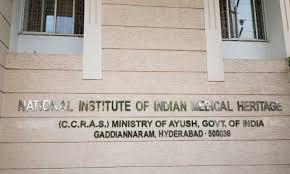New Delhi/Dehradun: The Ministry of Ayush and the National Institute of Indian Medical Heritage (NIIMH), Hyderabad, successfully hosted a two-day workshop during the 10th World Ayurveda Congress in Dehradun on December 13-14, 2024. The event aimed to enhance the global standardization of traditional Indian medical systems, including Ayurveda, Siddha, Unani, and Sowa Rigpa.
The workshop, organized by NIIMH, a WHO Collaborating Centre for Traditional Medicine Research, focused on implementing the International Classification of Diseases (ICD) Traditional Medicine Module-2 (ICD-11 TM2), updating terminologies, and advancing a scoping review for the development of Sowa Rigpa medical terms.
The two-day deliberation produced several significant outcomes: A roadmap for implementing ICD-11 TM2 in India, including updates on terminologies and procedure codes for traditional medicine systems. A strategy for developing the International Classification of Health Interventions (ICHI) for Ayurveda, Siddha, and Unani systems. A scoping review of literature for creating Sowa Rigpa terminologies and future research plans.
One notable recommendation was to observe January 10 annually as “Ayush Medical Coding and Records Day,” an initiative welcomed by attendees.
The inaugural session featured prominent dignitaries, including Secretary of Ayush Vaidya Rajesh Kotecha, National Research Professor Bhushan Patwardhan, and officials from various traditional medicine systems. International delegates from Italy, Argentina, Sri Lanka, Nepal, and Malaysia provided insights on global practices and collaborations for ICD-11 TM2 implementation.
The second day included focused discussions on Sowa Rigpa terminologies, with inputs from experts like Dr. Tashi Dawa of CHTIM, Varanasi, and Dr. Sonam Dolkar of Men-Tsee-Khang, Dharamsala.
The event also launched a special issue on “Ayurveda Aahar” in the “Journal of Drug Research in Ayurvedic Sciences”.
This workshop reflects the Ministry of Ayush and WHO’s commitment to promoting evidence-based traditional medicine and strengthening its integration into global healthcare frameworks.
Source: PIB



